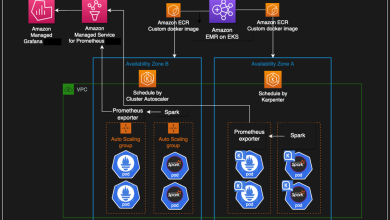
If you are like me, then tracking home-related expenses such as utilities, maintenance, groceries, and an emergency plumber may be a little too much. But what if I were to tell you that there are fabulous free apps that can put a smile on your face, making the entire job a breeze while keeping your personal data under tight lock and key?
No sneaky data sharing with third parties, no unnecessary uploading to the cloud, just you and your finances existing in this bubble of guaranteed security. This article will discuss five such applications that treat your privacy as paramount. Whether you are trying to get on the fast track towards that dream renovation or just want to keep monthly outgoings under your belt, these apps will assist you in gaining control without selling away a bit of you. Shall we?
Why Is It Important to Track Home Expenses?
Imagine: The moment you settle in, bills seem to just start appearing. Electricity, water, internet, and home insurance are expenses that somehow accumulate faster than thought. If there were ever a case for keeping track of expenses to feel empowered, this would be it.
When one can monitor where money goes, they begin spotting patterns: “How much do I really spend on electricity in the winter?” and so forth, which helps them to make wiser decisions on how to cut down. Also, that directly ties into some personal financial planning wherein bigger goals get funded, less of a surprise comes in to hinder, and everyone goes merrily away.
These apps allow for easy categorisation of expenses, specifically for home-related expenses, giving you some workable insight into that otherwise tiring task.
Cashew: The Offline Powerhouse for Everyday Tracking
First up is Cashew-App, an elegant one for Android and iOS platforms and, incidentally, a nice web counterpart for those who want to operate on a bigger screen. What’s good about Cashew is the offline working ability of the app, your data is kept locally on your device unless you decide to export them. This also means no chance of servers being hacked or corporations selling data on your spending habits.
For instance, you can have two or more accounts: one for household bills and the other for personal treats. Meanwhile, transactions can be categorised with a simple drag and drop. It stands out for home-related expenses: you can create subcategories for mortgage payments or lawn-care expenses, set monthly budgets for subcategories to avoid overspending on a new toaster, and avoid having to keep track of yourself. Recurring bills, such as rent or a home-security subscription, can be made automatic to save time. Open-source gives tech geeks the option to audit it, too, if they’re into something like that.
I’ve found it most useful for seasonal expenses, like heating bills, and then adjusting habits accordingly. Cashew will be regarded as a heroic companion if you are someone who respects simplicity and total control.
Buckwheat: Open-Source Simplicity with Zero Data Collection
In the following paragraph, I shall cover the app called Buckwheat, an Android-only application devoted to minimalism without compromising on functionality. Since it is fully open-source, it does not compromise user privacy in any way; no logins, no analytics, absolutely nothing! Everything is done locally on your phone, so it’s really good for privacy-minded folks who want to keep a tight record of home expenses with no footprint online whatsoever.
It has a simple and easy interface for entering new expenses very quickly and categorising them into groups of their choice. Think of it for home use: log, say, weekly grocery runs under “kitchen essentials” or costs for fixing that leaky roof. It is also good for budgeting, in that you can set limits for your categories like utilities and get a warning when you’re approaching that limit.
One of my suggestions is to use the app’s reporting in reviewing your monthly summaries: it certainly opens your eyes to how smaller home expenses accrue, working against you over time. No ads, no requests for money: just a smooth, undiluted user experience. Being free and community-led, the updates go towards user needs and away from monetization. Very good for someone just starting into expense tracking, as it is very simple.
Everplan: Fully Offline for Ultimate Privacy
If offline operation is your paramount concern, Everplan holds centre stage among these apps. This Android is totally offline: thus your data is neither shared nor even at risk of interception. No accounts to set up, no permissions to grant to cloud access, just pure local storage.
It is meant for fast logging of expenses while doing so with an option of categorising and tagging for home-specific tracking. For example, you can create categories for property taxes, cleaning supplies, or furniture upgrades, and then view trends through weeks or months. The app breeds pleasant navigation, courtesy of material design, alongside rudimentary budgeting to weigh coming costs of the home, say, annual HVAC maintenance.
An interesting insight here is that by looking back at past entries, you might figure out how to negotiate cheaper rates on certain services, potentially saving hundreds down the road. Everplan takes privacy seriously: there’s not even data collection, so this is an attractive option for anyone wary of big tech peering into their wallet. Very handy for households whose schedules demand that expenses be input by more than one user without sync issues.
Paisa: Privacy-First Manual Budgeting
Moving on to Paisa, another Android star that has its foundation built upon user data privacy. A free software, Paisa doesn’t associate with banks or share info, thereby ensuring that all your financial details remain secure on your device. The app focuses on manual entry, which supports conscious tracking, just perfect for home-related spending where details matter.
You can have in-depth categories for almost anything, from energy bills to decor items, and set a budget that will notify you in case you go over it. Visual insights provided by charts and reports include pie charts showing the percentage of congruence towards housing or other areas of income, which will foster better habits. Consider using Paisa to track savings towards home improvements.
A no-frills style makes it very much distraction-free, with the active community guaranteeing frequent updates, security-wise. Paisa eases the first home buying and assists in building expense habits from the ground up without loading up features or compromising privacy.
Bluecoins: Comprehensive Tracking Without Data Leaks
Filling up our list, Bluecoins Finance & Budget, available both on Android and iOS, is known for its robust features within a privacy framework. The developers proclaim with boldness that they collect and share no user data, with local storage on the user’s end unless optional sync is enabled.
Free to use for the basic features, you get to track your expenses more intently under user-defined categories, excellent for home management, i.e., splitting costs between “maintenance” and “utilities” for greater control. You can also enter transactions manually, set reminders for bills, and generate reports to show spending patterns, e.g., how often you pay more for water in the summer. If you are clever, you can use its goal feature to set aside money for home enhancements and monitor the progress with no interference whatsoever.
Bluecoins features a smooth, easy-to-use interface, together with visualisations to enhance clarity, and its focus on security guarantees it will never play tricks or sneak in any trackers. Excellent for a family sharing a device, as multiple profiles can be created without exposing any data to others.
Wrapping It Up: Seize Your Own Finances!
There you have it, five free apps keeping you in the driver’s seat when it comes to recording home-related expenditures while shielding your privacy like Fort Knox. Starting with Cashew, which works even offline, all the way to Bluecoins, which offers minute analytics, each serves their own advantage depending on lifestyles.
Remember, consistency is your goal here; try logging expenses for one week and go forward from there. You may even notice a few saving opportunities you never before noticed, and suddenly, there’ll be some money for family dinners or a backyard makeover.




